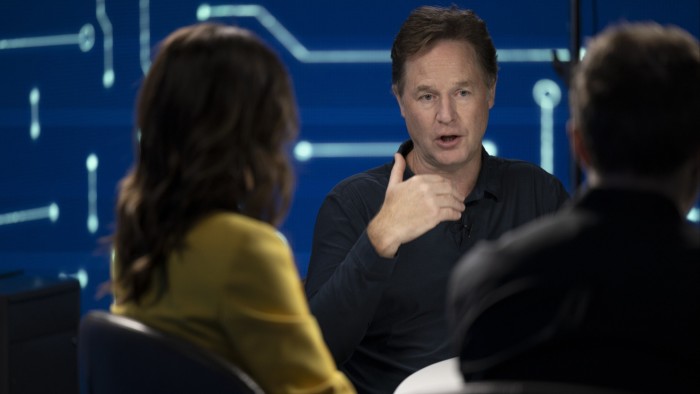Unlock the White House Watch newsletter for free
Your guide to what the 2024 US election means for Washington and the world
Meta has conceded it was too heavy-handed with certain content moderation in the past, in an overture to Donald Trump as its chief executive Mark Zuckerberg seeks an “active role” in shaping tech policy debates with the incoming US administration.
Sir Nick Clegg, Meta’s president of global affairs, said the social media platform previously “overdid it a bit” when moderating pandemic-related content, a concession that appears designed to placate the president-elect, who has repeatedly accused the company of censorship and silencing conservative speech.
Clegg’s comments come as Silicon Valley leaders are jockeying to curry favour with Trump, who in the past has repeatedly clashed with what he considers a left-leaning constituency that has funded his opponents and censored him.
In a briefing with journalists, Clegg said Zuckerberg was keen to play “an active role in the debates that any administration needs to have about maintaining America’s leadership in the technological sphere”.
That leadership “is tremendously important given all the geostrategic uncertainties around the world, and particularly the pivotal role that AI [artificial intelligence] will play,” he added.
Zuckerberg, who is pouring investment into AI as Meta races to become a leader in the space, last week dined with Trump at his Florida estate in Mar-a-Lago. Meta said Zuckerberg was “grateful” for the invitation, adding: “It’s an important time for the future of American innovation.”
Leaders at top tech firms have rushed to build relationships with Trump since his decisive election victory last month. Many of them have faced significant regulatory probes and antitrust threats as part of a crackdown by Joe Biden’s Democratic administration.
Meta will have to navigate an increasingly complex political landscape. Elon Musk, the billionaire owner of rival social media platform X, is one of Trump’s closest advisers after pouring millions of dollars into his re-election campaign and is expected to help shape federal AI and technology policy.
Trump has also previously said he would not ban TikTok upon his return to the White House in a bid to preserve “competition” in a market dominated by Meta, and that he would explore revising regulations around social media moderation.
Earlier in the year, Zuckerberg said he wanted to remain neutral during this US election cycle, and has also reduced political content across Meta’s platforms as part of an effort to avoid getting dragged into the partisan fray.
However, he shocked some Democrats, as well as staff internally, when he wrote a letter to the House judiciary committee chair Jim Jordan in August accusing the Biden administration of pressuring Meta to “censor” certain Covid-19 content during the pandemic.
Clegg said while the social media platform had been focused on reducing the prevalence of harmful content, Zuckerberg wanted “an area of ongoing focus” to be on redoubling efforts “to improve the precision and accuracy with which we act on our rules”.
He added: “We’re acutely aware — because users quite rightly raised their voice and complained about this — that we sometimes over enforce, we make mistakes and we remove or restrict innocuous or innocent content.”



